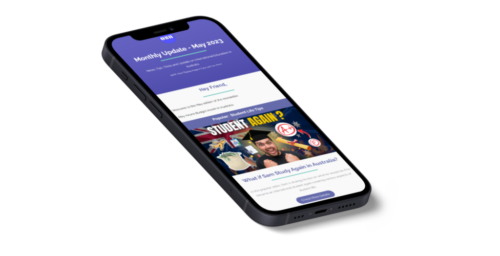Orientation (O -Week)
Starting studying in university is already challenging itself and it is even more challenging when you are new to the country, culture and systems.
So to help students (locals and international) universities, TAFEs and many private training organisations organise an orientation.
In many universities and institutions it is also known as O -Week or Welcome Week.
Although, the purpose of this week or orientation is to help students settle into their new study schedule and system, there are many other things that usually happens in the orientation week (especially in TAFEs and Universities).
What exactly is Orientation or O-Week?
Orientation or O-Week (for tertiary students) is a way to learn more about the institute you are going to study, your course, services and support system available for you as a student.
If the studies where they will explain more about the institution, your studies, providing you with a time table and a student card (which can be useful for many exclusive discounts and offers).
Should I attend orientation?
Usually, you will only need to attend orientation once in your educational institute. As a newcomer to the country, we highly recommend you to attend the orientation as it helps you to meet other students and make new friends, administration staff members and teaching team and understand your own institution better.
How long it is?
The length of the orientation usually varies from one institute to the other. Usually, for private colleges or training providers orientation can last anywhere from 1 to 3 hours to a day. But for TAFEs and universities, it usually lasts from a day to one week.
When it is?
Orientation is conducted before you start studying at any institution in Australia. For most of the universities and TAFEs in Australia, the O-Week is in one of the weeks in February and July. For private institutions, it usually varies and is conducted before the new students start their course.
What’s usually covered in it?
There are many things that are usually covered during the orientation. Here are some of them:
- About the Institution – One of the first thing that is discussed in the orientation session is about the educational institute, its history, key people and the policy and procedures.
- About your course – You will also get to know about your course, course structure, holidays, assignments, exams and other important information about your course.
- Lectures, Tutorial, Practicals and Workshops information – There will be specific information about your classes that includes your class timetables, classroom and lecturer information. Most of the institutes in Australia uses online learning management systems (LMS) for accessing resources and assignment submissions, so you will be provided with the login details of the that as well.
- Tour around the Institution – You will be shown around the campus, your classroom and you can get to meet your teachers.
- Facilities and services available for the students – You also get to see all the facilities like library, computer labs, photocopy facilities, canteens or cafes, kitchen, hangout areas etc. You will also be informed about the student support services like job application help, counselling and other support services.
- Health and safety information – There will be a health and safety induction for all the new starters to understand how to be safe in case of an emergency.
- Student clubs and unions information – If there are any student clubs or unions in the institute, you will be informed about them and you can join them also. Although, there is usually a small fee you may need to pay for joining them.
- Free goodies, food and entertainment – Many of the student-related businesses and services will have lots of free goodies available for the students. University and student unions can also arrange free food and entertainment like games or live music for the students.
- Information about your Student ID – Usually, one of the administration team members will take your photograph and prepare you a student ID from your educational institute which recognises you a student in that institute. It can be useful for claiming public transport concessions and other concessions.
- Other topics relevant information regarding work and life in Australia – Apart from the information related to studying, there will be lots of other information about working and living in Australia will be provided. Sometimes, few government agencies will come and provide relevant information about studying, working and living in Australia.

